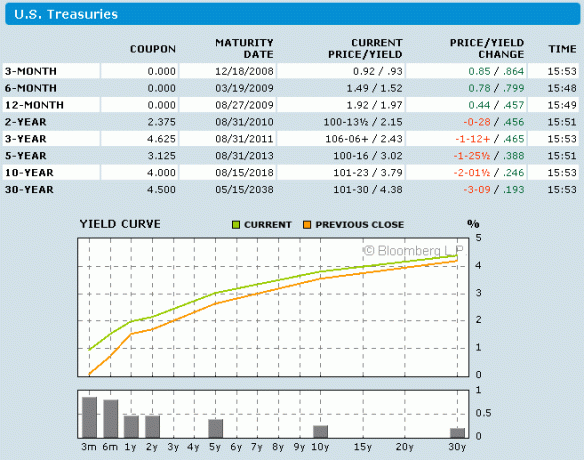Jim Grant (of the excellent but pricey, Grant’s Interest Rate Observer) penned an essay for the Wall Street Journal this past July, in which he lamented the indifference citizens were showing as bankers repeatedly helped themselves to tax dollars, during a crisis that they brought upon us.
“Raise less corn and more hell,” Mary Elizabeth Lease harangued Kansas farmers during America’s Populist era, but no such voice cries out today. America’s 21st-century financial victims make no protest against the Federal Reserve’s policy of showering dollars on the people who would seem to need them least. …
Possibly, there aren’t enough thrifty voters in the 50 states to constitute a respectable quorum. But what about the rest of us, the uncounted improvident? Have we, too, not suffered at the hands of what used to be called The Interests? Have the stewards of other people’s money not made a hash of high finance? Did they not enrich themselves in boom times, only to pass the cup to us, the taxpayers, in the bust? Where is the people’s wrath? …
The American people are famously slow to anger, but they are outdoing themselves in long suffering today. In the wake of the “greatest failure of ratings and risk management ever,” to quote the considered judgment of the mortgage-research department of UBS, Wall Street wears a political bullseye. Yet the politicians take no pot shots. …
Wall Street is off the political agenda in 2008 for reasons we may only guess about. Possibly, in this time of widespread public participation in the stock market, “Wall Street” is really “Main Street.” Or maybe Wall Street, its old self, owns both major political parties and their candidates.
Grant goes on to suggest that the reason there is no outrage is that the populists of the early 1900s won the battle over the role of government in monetary policy. This system of paper money, easy credit, government-sponsored loans, inflation and debt forgiveness is exactly what the fire-breathers (and bankers, I would add) wanted.
Well, the bailout to end all bailouts is finally inspiring a bit of anger, though most of those expressing it seem to be among that narrow segment of the population that knows what a central bank is. The responses to a recent WSJ.com blog post were overwhelmingly negative, although at a fairly high level of sophistication, sort of like the crowd that chimed when any major news outlet to mentioned Ron Paul last year. Here are some excerpts:
If I could only get the Treasury to buy my lottery tickets that didn’t pan out, at what i paid for them!
I’m sick of this!!! Wall Streeters are behind the scenes pulling every lever they can find to get themselves out of this mess at OUR (i.e. the TAXPAYERS) expense under the guise of “saving the economy”. Lenders WILL lend money when they think they will be paid back…period. All of housing will, going forward, be federally related and subsidized. All the big lenders and banks are going to offload the bad loans and securities collateralized by same onto the Government, i.e. the TAXPAYERS so equity investors can salvage investments, directors and officers can minimize lawsuits, and Goldman Sachs and Morgan Stanley can keep their stock price up…so for God’s sake, let’s spend a trillion of our money..
Essentially, it’s a game of hot potato. The mortgage and credit industry created a huge lot of bad debt. They didn’t want this risk, so they sold it to investment banks as complicated financial instruments no one really understood. The financial companies passed this risk to their investors, who are in many cases cash rish foreign governments. Now, when everybody came to the realization this debt was not going to be paid, the US government didn’t want to pi$$ off the foreign governments paying for our little credit party, so they passed the “hot potato” to the U.S. taxpayer. The U.S. taxpayer, essentially powerless, now holds the potato. Is that about right?
Bernanke, Bush, Cheney, Paulson, “The Four Horsemen of the Apocalypse’ and my homeboys, go forth pillage, plunder. You have obeyed your masters the international global fascists! The people are broke but you don’t care!
This is completely outrageous. ‘Bailout’ Bernanke and his cronies are inflicting the biggest scam on the US taxpayer in history. Why are we destroying our economic health to bail out some rich cats whose fraud caught up with them?
Interesting that the first bailout attempt, “the Entity”, never materialized because private capital did not want to purchase toxic assets. Never fear, the most recent bailout, aka the Treasury Garbage Machine, ignoring the precedent suggested by The Entity, will purchase these very same assets. If Credit Suisse is even close in its forecast of $6 trillion in foreclosures, have pity on the US taxpayers.
Gee, I wish I knew six months ago that I could have left all my cash in a more volatile money market and be just as secure as when I transferred into a Treasury based fund at 150 less basis points. Stupid me. I’ll never make that mistake again. I should have known that Mssrs. Paulsen, Bernanke, Dodd and Co. would come to the rescue. That’s why I call them the Dukes of Moral Hazard.
Welcome to the USSA. The free market is no more.
when time names its man of the year it should not be a human being
it should just read
THE BAILOUT-THING OF THE YEAR
ps you forgot barney franks housing bailout bill
what a sad day to be a responsible american
Nothing new. The idiots in government are buying idiotic loans made by the idiots in banking so the idiots who can’t afford the loans they got from the idiots in banking will be foreclosed on by the idiots in government. The real idiot is the guy who doesn’t leave the country.
These comments are from straight down the line, hardly skipping a post. If only the majority of the country didn’t get more from the government than it gave, we might just have a quorum.
But that’s what you get with democracy (we were given a republic, but couldn’t keep it): start with a few handouts, and you create a class that grows bigger and dumber with every generation, until it is so easy to control that the leaders only have to maintain the illusion of democracy.
How about a little George Carlin?



